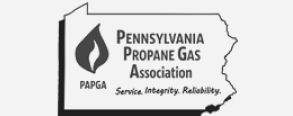

Connecticut's energy policies and recent legislation primarily focus on promoting renewable energy, increasing energy efficiency, and reducing greenhouse gas emissions. While these policies are mainly aimed at electricity generation and consumption, they do have indirect effects on propane energy use in the state. Here’s how:
Impact on Propane Energy
- Energy Efficiency Improvements: Connecticut's emphasis on energy efficiency can affect propane use positively. Programs that encourage energy efficiency improvements in homes and businesses often include measures that enhance the efficiency of propane appliances and systems. For example, incentives for upgrading to more efficient propane heaters or boilers can lead to reduced propane consumption and lower energy costs for consumers.
- Potential for Hybrid Systems: With the increasing adoption of renewable energy sources, there is potential for hybrid systems that combine propane with renewable energy technologies. For instance, a solar water heating system could be supplemented with a propane water heater, ensuring reliable hot water supply even during periods of low solar energy production.
- Propane as a Backup Energy Source: As Connecticut invests in renewable energy and energy storage solutions, propane can play a role as a backup energy source. In times of high electricity demand or during power outages, propane generators can provide a reliable source of energy, supporting the grid and ensuring energy security for homes and businesses.
- Commercial and Agricultural Use: Propane continues to be an important energy source for commercial and agricultural applications in Connecticut. Policies that support energy efficiency and renewable energy integration can lead to more efficient use of propane in these sectors. For example, more efficient propane-powered equipment and vehicles can reduce overall propane consumption while maintaining operational effectiveness.
- Incentives and Rebates: Connecticut's energy policies often include incentives and rebates for energy efficiency improvements and the adoption of cleaner technologies. These incentives can be applied to propane systems, encouraging consumers to upgrade to more efficient propane appliances and heating systems. This not only reduces energy consumption but also lowers costs for propane users.
- Environmental Considerations: As Connecticut focuses on reducing its carbon footprint, propane's relatively lower emissions compared to other fossil fuels like coal and oil can be advantageous. Propane is considered a cleaner-burning fuel, and its use can help the state transition to a lower-emission energy landscape while renewable infrastructure is being built up.
Connecticut's energy policies are designed to create a sustainable and efficient energy future. While the primary focus is on renewable energy and electricity, these policies also impact the use of propane in various ways. By promoting energy efficiency, supporting hybrid systems, and providing incentives for upgrading to more efficient propane appliances, the state encourages the responsible and efficient use of propane. Learn more about how Tankfarm can help you with all your propane needs.















